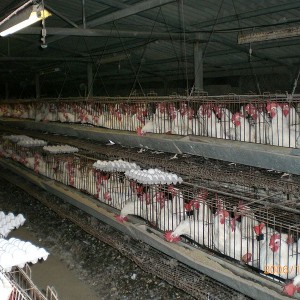Excerpted from the Seattle Weekly:

Image: Wikimedia Commons
Both Marilyn Watkins, policy director for the Economic Opportunity Institute, and Eric de Place, a senior researcher at the Sightline Institute, recommend closing as many of the 567 tax loopholes currently afforded by the state to various corporations and industries.
Watkins is particularly opposed to tax breaks for the farm industry. While farmers are hardly the stereotypical Wall Street fat cats, Watkins says the largest beneficiary is industrial agribusiness, not mom-and-pop homesteads.
“We almost completely exempt farms from taxation in our state,” Watkins says. “That made sense back in ’30s when it was family farmers slammed by the depression and in financial crisis, but there’s not a good reason in this day and age to exempt big agribusiness from taxation.”
According to de Place, several farm tax loopholes border on absurd. They include caveats for the propane used to heat vast chicken coops, and fine print that favors bull semen traders, he says.
“You name it there’s an exemption,” de Place says. “They live in this weird tax-free environment, Maybe that makes sense from public policy standpoint, I don’t know, but do we really need tax-free bull semen? Is that hugely important?”
More To Read
April 17, 2024
2023-24 Impact and Gratitude Report
Reflecting on a year of progress and transition at EOI
April 12, 2024
Welcoming our New Executive Director, Rian Watt!
EOI is excited to begin its next chapter under new leadership
April 4, 2024
Is There a Valid Argument Against Cost-Free College in Washington?
Cost-free college is a meaningful investment that would change lives. What's stopping Washington from making it happen?
